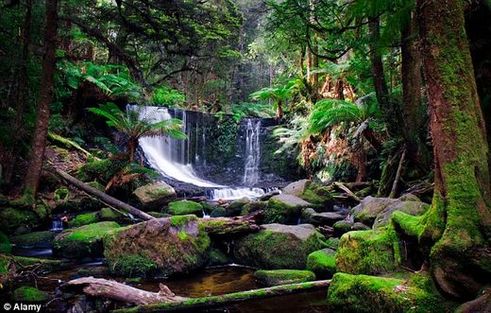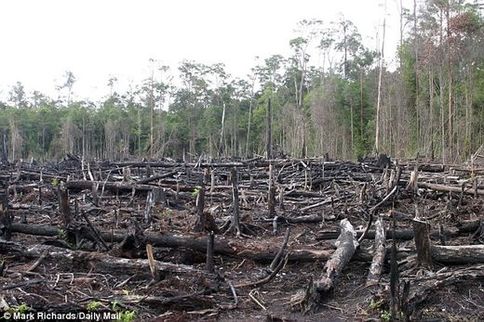- Nasa study shows tropical forests absorb 1.5 billion tonnes of CO2 a year
- Rainforests absorb more than half of CO2 taken up by vegetation globally
- Scientists previously believed tropical forests emitted carbon dioxide
- Researchers claim their findings emphasise the need to protect rainforests from deforestation to help counteract human greenhouse gas emissions
Trees and plants in tropical forests are absorbing 1.5 billion tonnes of carbon dioxide a year.
The researchers claim their findings show that rainforests are essential for soaking up excess greenhouse gases,
and play a far greater role than had been previously realised.
The researchers claim their findings show that rainforests like the Amazon are essential for soaking up excess greenhouse gases, and play a far greater role than had been previously realised. Dr David Schimel, a researcher at Nasa's Jet Propulsion Laboratory in California, who led the study, said: 'This is good news, because uptake in boreal forests is already slowing, while tropical forests may continue to take up carbon for many years.' However, Dr Schimel and his colleagues warn that deforestation in tropical rainforests could exacerbate climate change by leaving more carbon dioxide in the atmosphere.
In total, they estimate that forests and other vegetation absorb around 2.7 billion tonnes of carbon dioxide, about 30 per cent of that emitted by humans.
Deforestation and burning releases carbon dioxide into the atmosphere, and were thought to cause tropical forests
to release more carbon dioxide than they absorbed. But the new study suggests this is not the case.


 RSS Feed
RSS Feed